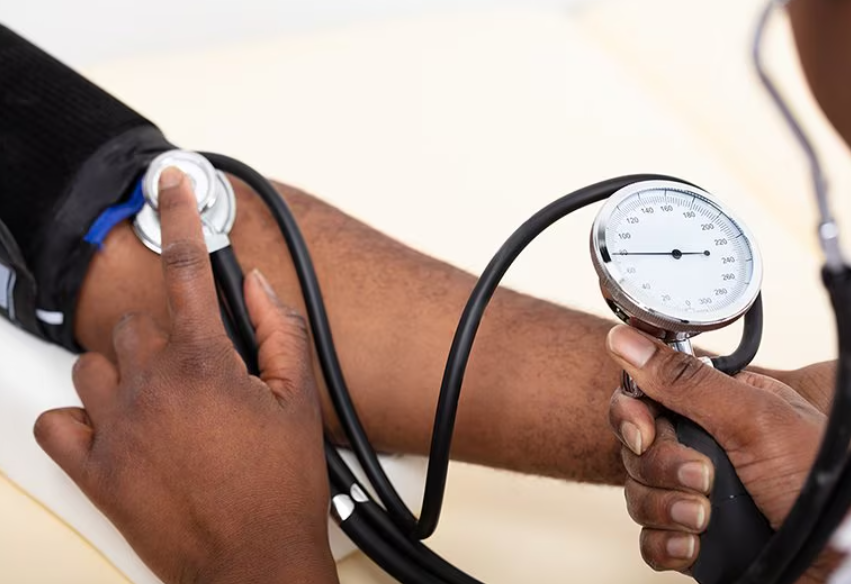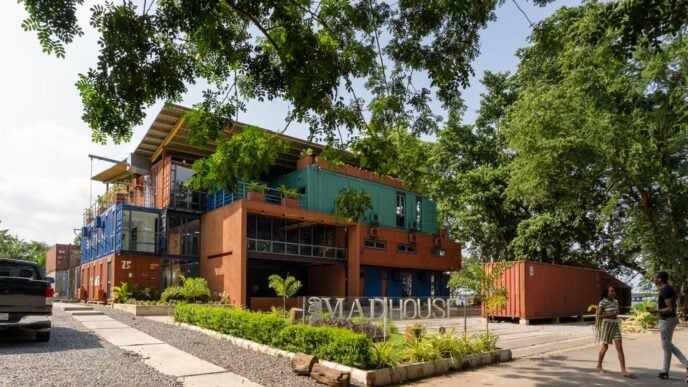A 2023 World Health Organisation (WHO) report indicated that an estimated 1.3 billion adults aged 30-79 years worldwide had hypertension, with two-thirds residing in low- and middle-income countries. This represents a significant global health challenge, as hypertension is a major contributor to heart disease, stroke, kidney disease, and other health problems and is a leading cause of premature death globally. The prevalence of hypertension increases with age, with many countries reporting that over 50% of people over 60 years old have it. Unfortunately, a significant portion of those with hypertension are unaware of their condition, and even fewer have it under control.
In Nigeria, the prevalence of hypertension is high and increasing, with estimates ranging from 28% to 38.1% among adults. In addition, a significant portion of the population is estimated to have pre-hypertension, further increasing the risk of developing hypertension. Though some studies show a slightly higher prevalence in men than women, others indicate similar rates.
Also known as high blood pressure, hypertension is a condition in which the force of blood against your artery walls is consistently too high. And blood pressure is the force of blood pushing against your artery walls; hypertension simply means this force is too high and stays high. It is like a water hose with too much pressure; it can damage the hose over time.
Blood pressure readings have two numbers: the top number (systolic) represents the pressure when the heart beats, and the bottom number (diastolic) represents the pressure when the heart is at rest between beats. A confirmed reading of 130-139/80-89 mmHg, based on the average of two or more readings taken on at least two separate occasions, not a single reading, is considered Stage 1 hypertension. A confirmed reading of 140/90 mmHg or higher is Stage 2. It is therefore essential that you constantly check and know your numbers.
Advertisement
The truth is that hypertension can be caused by a combination of lifestyle factors, underlying medical conditions, and genetics. Diets high in sodium (salt) can increase blood pressure, while low potassium intake can also contribute. Lack of exercise can lead to weight gain, which is a risk factor for hypertension. Smoking and exposure to second-hand smoke can equally raise blood pressure, while drinking too much alcohol can increase blood pressure, especially in men. Excess weight can put extra strain on the heart and blood vessels, thus increasing blood pressure.
In addition, chronic stress can lead to temporary increases in blood pressure, and stress-related habits (like overeating or drinking) can contribute to long-term problems. Sleep apnoea, a condition where breathing repeatedly stops and starts during sleep, is similarly linked to high blood pressure.
And the risk of hypertension increases with age, especially after 65. Also, having a parent or sibling with hypertension increases your risk. Also, certain ethnic groups, like Black people, are at higher risk for developing hypertension at an earlier age. Certain chronic conditions, like kidney disease, diabetes, and other conditions, can likewise increase the risk of hypertension.
Advertisement
Furthermore, some medications can affect blood pressure, so it is important to discuss any potential side effects with a healthcare provider. Hypertension can also occur during pregnancy, sometimes as a complication, just as air pollution can contribute. Besides, socio-economic factors, like income, education level, and where you live, can play a role in high blood pressure.
Though most people with hypertension do not experience any symptoms, especially in the early stages, some may, however, experience some signs, especially when blood pressure is dangerously high or has been high for a long time. Sudden, severe headaches can be a sign of very high blood pressure. Chest pain can indicate that hypertension is affecting the heart. Dizziness, especially when standing up, can be a symptom. Hypertension can affect blood vessels in the eyes, causing vision problems.
Furthermore, difficulty breathing can be a sign of hypertension affecting the lungs or heart. Nausea and vomiting can also occur with very high blood pressure. Frequent or severe nosebleeds can equally be associated with high blood pressure. Elevated blood pressure can sometimes be linked to feelings of anxiety, and confusion or mental fog can occur with very high blood pressure. In addition, some people with hypertension may experience persistent fatigue. Feeling like your heart is racing or pounding can likewise be a symptom, and blood in the urine can be a sign of kidney damage caused by hypertension. Moreover, redness or warmth in the face due to vasodilation may be a symptom.
The truth is that hypertension can be prevented with a healthy diet and weight, regular physical activity, limiting alcohol, avoiding smoking, adequate sleep, and managing stress properly. So, embrace a diet rich in fruits, vegetables, and whole grains, and limit sodium (salt) intake. The Dietary Approaches to Stop Hypertension (DASH) diet comes highly recommended in this regard. Aim for at least 150 minutes of moderate-intensity or 75 minutes of vigorous-intensity aerobic activity per week, along with strength training exercises. If you are overweight or obese, losing weight can significantly lower your blood pressure. Drink alcohol in moderation if you cannot stop taking it altogether. Tobacco use damages blood vessels and increases the risk, so you need to consider stopping it. Then find healthy ways to cope with stress, like deep breathing or exercise, and aim for adequate sleep, like 7-9 hours of sleep per night.
Advertisement
For hypertension treatment, lifestyle changes, as already mentioned above, are crucial. However, if lifestyle changes are not enough to bring down your blood pressure, a doctor may prescribe medications like diuretics, ACE inhibitors, or beta-blockers. It is very important to have your blood pressure checked regularly and work consistently and diligently with your healthcare provider to manage your condition. Keep all scheduled appointments with your healthcare provider to monitor your progress and adjust treatment as necessary.
Hypertension is a serious medical condition and is a leading cause of premature death globally. Though it often has no noticeable symptoms, it can be largely prevented and effectively managed through lifestyle changes and, if necessary, medication. Early detection and treatment are crucial to prevent serious complications. So, reach out from time to time to a qualified healthcare professional to check your blood pressure and diligently heed medical advice once it is offered.
Ojenagbon, a health communication expert and certified management trainer and consultant, lives in Lagos.
Advertisement
Views expressed by contributors are strictly personal and not of TheCable.












